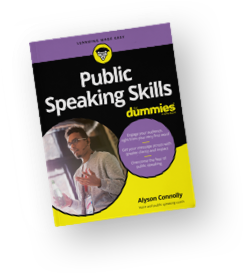Last year the world was fixated on 12 Thai boys and their coach. A soccer team trapped in a cave and a frantic rescue mission trying to save them. I wondered how they were keeping calm? Was anyone freaking out? But we saw pictures of them looking very relaxed, even smiling. Turns out their coach, Ekkapol Chanthawong was a Buddhist monk who had previously lived in a monastery for 10 years. He knew he needed to keep the boys calm and reached back to his experience as a monk and used meditation.
Link to the full story:
https://www.bbc.com/news/world-asia-44791998
Why meditation?
Meditation may seem to be a practice of the mind, but it has a direct effect on you physically and on your brain. The amygdala in our brain plays a key role in the processing of our emotions. When we experience fear, the hypothalamus, which is the control centre of our brain, sends a message to the amygdala which then activates the fight, flight or freeze response. Your adrenaline is on overdrive and the stress hormone cortisol is secreted. As a result, we take shallow breaths, our body tenses up and we just want to run! Not something that you want to experience when you’re trapped in the cave, or even for you, when you’re delivering a speech. Meditation is a wonderful way to calm down that amygdala, and prevent the domino effect of panic. In the book, “Rewire Your Anxious Brain”, (New Harbinger Publications, Inc., 2015) authors Catherine M. Pittman and Elizabeth M. Karle write that meditating regularly helps reduce your stress and anxiety. It also helps to reduce high blood pressure, insomnia, and panic attacks.
It is all in the breath!
Great speakers breathe deeply. They take their time and don’t rush their words. They look like they could be up there forever! I instill in my clients the need to become aware of their breathing. Do they take shallow, short breaths from their upper chest or do they breathe deep into their lungs? I get them to visualize dropping their breath as deep as they can. Remember when you were a kid and were upset? Your Mom told you to take a few deep breaths to calm down. She was right. Breathing deeply activates the calming ‘rest and digest’ parasympathetic nervous system. Breathing is an integral part of meditation.
Meditation isn’t new, it has been around a long time, since at least 100 BC. You probably have the image of people sitting cross legged chanting ‘om’. Yes, that is one way to do it. “But”, you say, “I have so little time in the day. Plus, if coworkers here me chanting, they’re going to think I’ve lost my mind!” When you meditate you focus on one thing, it can be your breath, or the ocean, or an object. You don’t need to sit cross legged and ohm while incense is burning, unless that’s your jam. For me, I go to my happy place. I’m lying on the beach hearing the waves go in and out, feeling the sun on my body as I’m sinking into the sand or chair. But you can find another way that works.
In his book, Meditation for Beginners,( Justin Albert, 2014), the author gives great examples: Here’s one:
Sit in a room that doesn’t have any distractions, (like a computer, TV, or your three year old). Slowly breathe in and out. Go through a few cycles. Now after you exhale, count in your mind “one” then exhale and count “two”, exhale again and count ‘three”. Go all the way up to ten and start again at one. Counting just to 10 and then going back to the beginning feels like a loop. When you count higher than 10 it just seems like it is never ending.
*** If your mind wanders then just allow to come back and start again.
The world rejoiced when those Thai soccer players were rescued and it might take a long time for them to recover. But I bet the meditation exercises they went through helped prevent more stress and made recovery easier.
So next time, even hours before your presentation, when your palms are starting to sweat, your hands are trembling and you’re thinking, “I gotta find a way out of this!” try to meditate. Who knows, you might even make it a daily thing…
